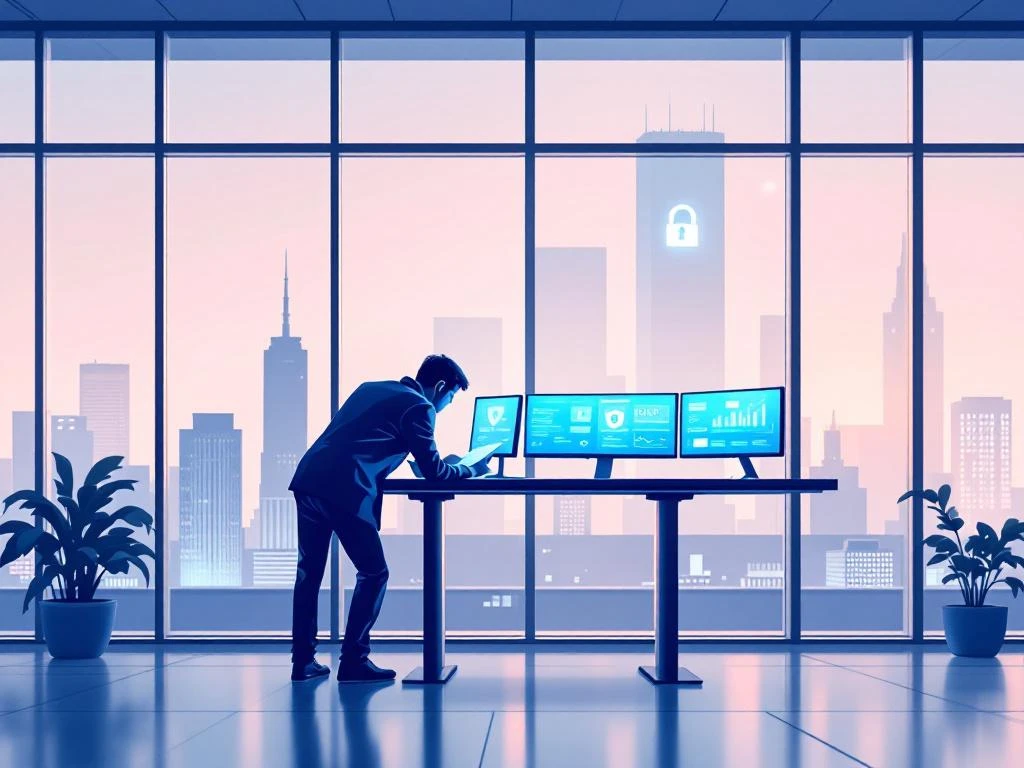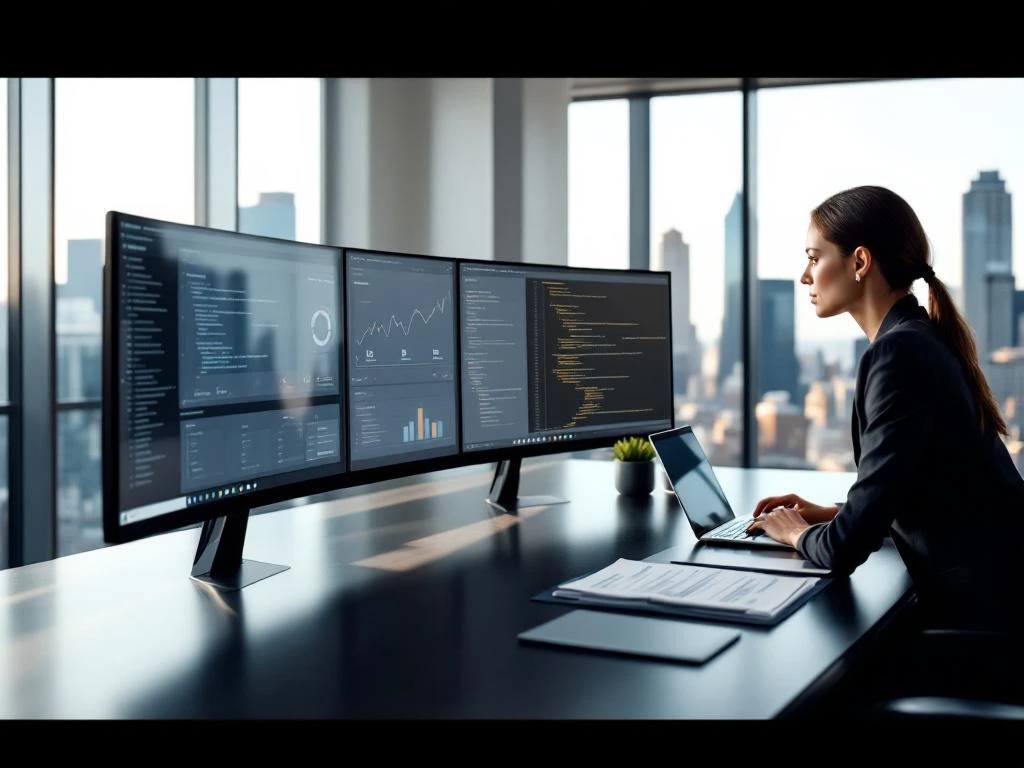

-
UK: +44 203 8876 770
US: 315 508 6500 - cybersecurity@thisisiceberg.com
-
8 Devonshire Square, London, EC2M 4YJ

Finding the right litigation support professionals has become increasingly complex. Today’s legal environment demands candidates who can navigate technology, understand legal processes, and manage complex projects simultaneously. Yet many hiring managers still search for single-skill specialists, missing out on the versatile professionals who drive real value.
The most successful litigation support teams combine technical expertise with legal knowledge, communication skills, and project management capabilities. This guide shows you exactly how to identify these multi-talented candidates and avoid the common hiring mistakes that let top talent slip away.
Modern litigation support roles require professionals who can bridge multiple disciplines. The days of hiring purely technical specialists or solely legal-focused staff are ending. Today’s complex legal cases demand professionals who understand both the technical infrastructure and the legal implications of their decisions.
Consider how document review has evolved. What once required basic technical skills now involves cloud forensics, data privacy compliance, and sophisticated eDiscovery platforms. A professional handling these tasks needs technical competency, legal awareness, and the communication skills to explain findings to attorneys who may lack technical backgrounds.
Traditional single-skill hiring approaches fall short because they create silos within your team. When your technical staff can’t communicate effectively with legal teams, projects slow down. When your legal professionals don’t understand the technical constraints, they make unrealistic demands. Cross-functional professionals eliminate these bottlenecks.
The litigation support landscape now includes Business Email Compromise investigations, cloud forensics, and increasingly complex data privacy requirements. Professionals need to understand not just how to extract data, but when extraction is legally permissible, how to maintain chain of custody, and how to present findings clearly to non-technical stakeholders.
Hiring narrow specialists creates communication gaps that slow projects and increase costs. When your forensic analyst can’t explain their findings to the legal team, you need additional resources to bridge that gap. When your project manager doesn’t understand the technical constraints of data processing, they create unrealistic timelines.
Cross-functional professionals reduce these inefficiencies. They serve as natural bridges between different aspects of your litigation support process, improving both speed and accuracy.
Effective litigation support professionals combine specific technical competencies with complementary soft skills. Understanding these combinations helps you identify candidates who can deliver immediate value across multiple areas.
The most valuable candidates understand both the technical processes and their legal implications. For example, a digital forensics consultant who also understands legal hold requirements can make better decisions about data preservation. They know which data sources are legally relevant and can explain their methodology in court.
eDiscovery project managers need technical understanding of processing workflows combined with legal knowledge about privilege, confidentiality, and disclosure requirements. This combination allows them to make real-time decisions during document review without constantly consulting legal counsel.
Look for candidates who can discuss both the technical aspects of their work and the legal frameworks that govern it. They should understand concepts like proportionality in discovery, attorney-client privilege, and work product protection.
Strong litigation support professionals translate between technical and legal languages. They can explain complex technical processes to attorneys in terms of legal implications and business impact. Equally important, they can communicate legal requirements to technical teams in actionable terms.
This skill shows up in how candidates describe their previous work. Do they focus only on technical achievements, or do they explain how their technical work supported legal strategies? Can they discuss technical challenges in terms that non-technical stakeholders would understand?
Generic project management skills aren’t enough in litigation support. The best candidates combine project management methodologies with deep understanding of legal processes and technical constraints. They know which tasks can run in parallel and which must be sequential due to legal or technical dependencies.
These professionals understand the unique pressures of litigation timelines. They can balance the need for speed with requirements for accuracy and defensibility. They know when to escalate technical issues and how to communicate delays in terms of case strategy impact.
Screening for cross-functional skills requires specific interview techniques and assessment methods. Traditional interviewing approaches often miss these capabilities because they focus too narrowly on individual skill areas. Here are the most effective methods for evaluating multi-disciplinary candidates:
These assessment methods work together to reveal candidates who can truly bridge the technical-legal divide in litigation support. The most successful hires demonstrate competency across all these areas, showing they can contribute immediately while continuing to grow in the role. This comprehensive evaluation approach helps you move beyond surface-level technical skills to identify professionals who will drive long-term value across your entire operation.
Present candidates with realistic scenarios that require both technical and legal thinking. For example, ask how they would handle a situation where opposing counsel requests data from a system that’s technically difficult to access. Strong candidates will discuss both the technical challenges and the legal implications of different approaches.
Ask about times when they had to explain technical concepts to non-technical stakeholders. Listen for evidence that they can adapt their communication style and focus on business impact rather than technical details.
Explore situations where legal requirements conflicted with technical constraints. How did they balance these competing demands? Did they find creative solutions that satisfied both requirements?
Review candidates’ work history for evidence of cross-functional collaboration. Look for roles where they worked directly with both technical and legal teams. Pay attention to how they describe their contributions to complex projects.
Strong candidates can discuss specific examples of how their work supported broader case strategies. They understand the business context of their technical work and can articulate the value they provided beyond purely technical deliverables.
Ask for examples of process improvements they’ve implemented. Cross-functional professionals often identify inefficiencies that pure specialists miss because they see the bigger picture.
Be wary of candidates who can’t explain their work in non-technical terms. If they struggle to discuss the business impact of their technical activities, they may lack the communication skills needed for cross-functional success.
Watch for candidates who dismiss the importance of areas outside their primary expertise. Comments like “that’s not my job” or “the lawyers handle that part” suggest narrow thinking that limits their effectiveness in collaborative environments.
Candidates who can’t discuss the legal or business context of their technical work may be purely technical specialists rather than cross-functional professionals.
Many litigation support leaders make predictable mistakes when recruiting, particularly around over-emphasising single skills and undervaluing adaptability. These common pitfalls can cause you to overlook exceptional candidates:
Avoiding these mistakes requires a fundamental shift in how you evaluate litigation support candidates. The most successful hiring strategies balance immediate technical needs with long-term growth potential, emphasise collaborative skills alongside technical competencies, and present compelling career development opportunities that attract ambitious professionals. By recognising these common traps, you can develop more sophisticated recruitment approaches that identify truly valuable cross-functional talent.
The most common mistake is hiring based primarily on technical competencies while ignoring communication and collaboration abilities. Technical skills can be developed, but the ability to work effectively across disciplines is harder to teach.
Many hiring managers create detailed technical requirements but give little thought to soft skills assessment. This approach attracts technically strong candidates who may struggle in collaborative environments.
Balance is important. You need sufficient technical competency, but prioritise candidates who can grow technically while already demonstrating strong cross-functional capabilities.
Litigation support work involves constant learning as technology and legal requirements evolve. Candidates who demonstrate adaptability and learning agility often outperform those with more experience but less flexibility.
Look for evidence of continuous learning in candidates’ backgrounds. Have they adapted to new technologies? Have they expanded their knowledge into adjacent areas? Do they seek out training and development opportunities?
Cultural fit matters particularly in litigation support because of the collaborative nature of the work. Candidates must work effectively under pressure with diverse stakeholders who have different priorities and communication styles.
Salary-focused hiring limits your talent pool unnecessarily. Many excellent candidates are motivated by factors beyond immediate compensation, including access to diverse forensic tools, autonomy to build labs and lead projects, and opportunities for professional growth.
The best litigation support professionals often leave roles not because of money, but because they lack opportunities to develop their skills or take on meaningful challenges. Highlighting growth opportunities and technical resources can attract candidates who might be out of reach based on salary alone.
Consider the total value proposition you offer, including professional development, interesting casework, and the chance to work with cutting-edge technology.
Finding litigation support professionals with cross-functional skills requires a more sophisticated approach to hiring than traditional single-skill recruitment. Focus on candidates who can bridge technical and legal domains, communicate effectively across disciplines, and adapt to evolving requirements. By avoiding common hiring mistakes and using targeted assessment techniques, you’ll identify professionals who can drive real value across your entire litigation support operation.
At Iceberg, we specialise in identifying these multi-talented litigation support professionals. Our deep understanding of both the technical and legal sides of eDiscovery helps us recognise candidates with the cross-functional skills that traditional recruitment approaches often miss.













